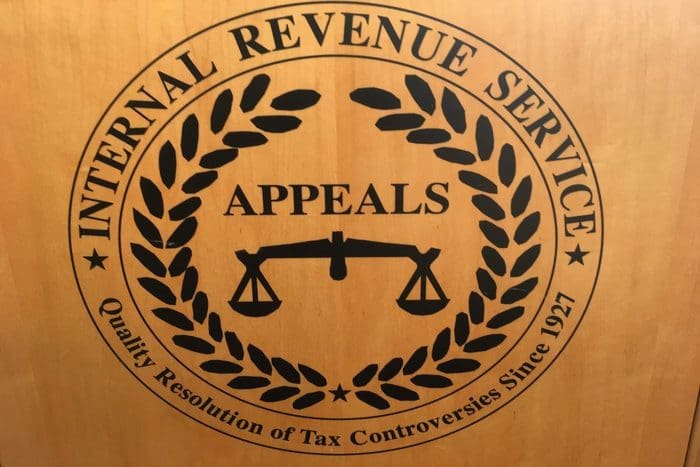The Unforeseen Consequences of the Trump Tax Reform on US Expats
November 22, 2023
Dateline: Tbilisi, Georgia Just last week, the House and Senate approved the Tax Reform bill and President Donald Trump signed it into law last Friday, December 22nd before leaving for his Christmas break in Florida. A couple of months ago, I wrote about what I thought could result from this tax bill, but nothing could have prepared us for the final, sloppily written bill and the consequences it will have on anyone living or doing business abroad. Honestly, you may want to sit down before reading the rest of this article. Below, I’ve summarized what is actually in the bill and – more importantly – how it may affect you. However, because of the complicated nature of the bill, this is general-level advice and not situation-specific. Additionally, no one in my expert network understands all the provisions of the new bill yet and we’ll be spending months figuring it all out. That means that some minor parts may change as we better understand the details. Despite the newness of the bill and the general lack of understanding of its implications, I wanted to update you quickly on developments with the Trump Tax Reform, as promised. https://www.youtube.com/watch?v=KgtokuI6RW4&ab_channel=NomadCapitalist
What It Does and Who It Helps
In all honesty, the person this tax reform helps the most is Trump himself. I don’t mean this in the way the media likes to portray it by trying to show that Trump and his businesses are going to get bigger tax cuts. No, this bill helps Trump simply because it is a win – his first win if truth be told. Not only is it Trump’s first major legislative victory of his first year in office but it is also the first major tax reform since President Reagan signed the Tax Reform Act of 1986. You can be sure that a reform as significant as this is something Trump will be boasting about for ages. But that doesn’t mean it was a win for everyone else. Understanding Trump and the GOP’s desperate need for a win goes a long way in explaining why what should have been a historical victory became such a hot mess, especially for anyone doing business offshore. As Republicans rushed the legislation through the House and Senate and Trump hurriedly signed the bill before his Christmas vacation, people like you and me got thrown under the bus. But most people aren’t going to complain about the reform. In fact, because it will help quite a few people, no one is going to worry about folks like you who could take a blow to the tune of hundreds of thousands of dollars thanks to bad legislation and a few simple strokes of a pen. The new bill does a lot of great things for people who are happy to live out their lives struggling to make ends meet in the United States. It doubles standard deductions from $6,000 to $12,000 for singles and from $12,000 to $24,000 for married couples. It also reduces the rates for five of the existing seven tax brackets. The new rates start at 10% and rise to 12, 22, 24, 32, 35, and 37% (down from the top rate of 39.6%). The highest rate applies to individuals who make more than $500,000 and joint filers whose income exceeds $600,000. Additionally, the tax reform abolishes the tax penalty associated with the individual mandate established under Obamacare, as well as the alternative minimum tax (AMT) rate applied to corporations. And, while it keeps the AMT for individuals, it raises the exemption to $500,000 for individuals and $1 million for couples. The bill also increases the qualifying child credit to $2,000 and allows taxpayers to deduct any medical expenses that exceed 7.5% of their adjusted gross income. Furthermore, while it keeps the 40% estate tax, it doubles the exemption levels to almost $11 million for individuals and doubles that for married couples. Finally, the Trump Tax Reform bill will also lower the corporate tax rate from 35% to 21% (not quite the 15% Trump promised in his election campaign) and will give pass-through entities a 20% reduction for the first $315,000 of joint income. Also, small business expensing was raised from $500,000 to $1 million.
How Does the Tax Reform Impact Expats?

While there is plenty of information out there about the facts we just covered, there is very little information in the news about how the tax reform will impact nomads and expats. The good news is that the bill does not make any changes to the bread and butter tax provisions for expats like the Foreign Earned Income Exclusion, the Foreign Housing Deduction, or the individual foreign tax credit. Unfortunately, it also didn’t change the US taxation system as previously hoped for. There was talk in the legislature of transitioning the US tax system away from worldwide, citizenship-based taxation to a territorial or residence-based taxation system like the rest of the world uses, but legislators could not pass that bill and US citizens remain stuck with the most demanding tax system in the world for expats. That said, if you live abroad and you (and your business) make approximately $100,000 a year or less, the tax reform bill changes practically nothing for you. If you are an expat entrepreneur who owns a business and you make more than the FEIE limit, however, the tax reform bill is about to pull the rug out from underneath your feet. In fact, entire tax and legal structures have been turned on their heads and everything you knew about US tax for expats has become practically obsolete. All of these changes can be traced back to just two provisions in the new law that impact nomads and expats. To fully understand the changes, we’ll take a look at how the old law worked and then examine each new provision and how it will change the name of the game.
How the Old Law Worked

First, let’s review the “old laws” that were the basis for all expat tax planning up until last week: 1. As a US citizen, you could spend most of your time living overseas and qualify for the Foreign Earned Income Exclusion. Under this exclusion, you could earn $102,100 (in 2017) income tax-free. Furthermore, you could exclude Social Security and Medicare tax as an employee of your foreign company. Basically, the first $102,100 in income was tax-free. This will not change. 2. Under the old law, all you needed was a non-US corporation and you could “retain” any earnings above the $102,100 limit in your company on a tax-deferred basis. The deferral could basically last forever and you could re-invest that money provided that you did not engage in a “US trade or business” or pay yourself via salary or dividends more than the FEIE limit. The only caveat was that you would pay “Subpart F” tax on any passive income at ordinary income tax rates on things like rental income. However, you could still bank in the US by having a US LLC under your non-US corporation. This part IS going to change. In the past, some of the largest companies like Google and Apple used the second provision to defer overseas profits and kept billions of dollars offshore in order to slash their taxes and increase profits. While smaller businesses much like yours also utilized these laws to save on taxes, the provisions in the tax reform bill that will impact you were actually created to target these big businesses and force them to repatriate much of their overseas profits back to the United States. The law does nothing to distinguish between the size of the business operating offshore, though. Thus, small, medium and large businesses are all treated equally under the new provisions. The two new provisions are as follows:
Provision #1: One-time Mandatory Repatriation of Funds

There will be a one-time mandatory repatriation of funds held in US citizen-owned foreign companies. The rate will be 15.5% of all retained earnings held in liquid assets, and 8% of those held in illiquid assets such as certain types of property. Up until now, those retained earnings could be deferred indefinitely. That changes with the new bill. Congress is changing how corporate earnings are taxed and their attempt to make Apple and Facebook repatriate their retained earnings was so rushed and so poorly written that ordinary US citizens (I believe unintentionally) got caught up in the mix. That means that any money you’ve retained in a Hong Kong, BVI, or any other foreign company will be subject to this one-time tax. You should expect to pay this one-time tax on retained earnings as of either November 2, 2017, or December 31, 2017 (I’m still double-checking these dates). The good news is that you can pay this tax over the course of eight years and the payment schedule is “backloaded.” For example, let’s assume that you have $1,000,000 in retained earnings – all in cash – on December 31. Under the new law, you will owe $155,000 in repatriation tax. However, you can pay 8% of that $155,000 in years 1-5, 15% in year 6, 20% in year 7, and 25% in year 8. That means that your repatriation tax bill next spring would be $12,400. It is my understanding that, even if you renounce your citizenship later, you can keep that payment plan through 2025. There is one piece of good news here: this means you now get to use the money in your company a bit more freely. If you want to buy real estate in your own name, my interpretation is that you should now be able to do that, because the money is repatriated. I am double-checking that now.
Provision #2: Future Deferral is Over

Whereas in the past all retained earnings could be deferred indefinitely, now, all future deferral is unequivocally over. This means that any income above $107,600 (or up to ~$215,200 if your spouse or partner works in the business, too) will be taxed as Subpart F income at ordinary rates. So, if you earn $1,000,000 in 2020, you would pay income tax on about $892,000 of that, no matter where you live. There is a strategy where you could insert a US C Corporation between you and the foreign company, which would allow you to avail yourself of the new 21% corporate tax rate, minus a 50% credit, so that you would pay 10.5% tax on everything above the Foreign Earned Income Exclusion. However, I am wary of this strategy. Also, since these rules apply to “controlled foreign companies” (CFC) – corporations that are majority-owned by US citizens – if you have a nonresident alien spouse, you may be able to use another solution that involves shifting ownership to avoid being labeled as a CFC. I am opposed to “strawman” and nominee structures in general, though, so I do not prefer this option and you would need professional advice before pursuing it at all. The general takeaway is this: as an expat, you can continue to operate your business through a non-US corporation and exempt roughly $100,000 in taxes via the FEIE. Anything past the FEIE limit will be taxed exactly as if you were living in the United States.
What Can You Do About It? Your 7 Options

If you are anything like me and aren’t ready to roll over and let the US government walk away with all your money, I do see several potential solutions. However, this information cannot replace professional, legal advice. I do not want ANYONE trying to do anything even the least bit questionable. Everything we do here at Nomad Capitalist is about staying 100% within the law. Not fully understanding this new law is NO excuse for breaking it. You must get professional help before acting on any of these options. That said, here are your seven options, from best to worst…
1. Renounce US citizenship in 2017
If you are a dual citizen, your best option is to renounce your US citizenship as soon as possible. The truly optimal solution would have been to renounce before the bill was passed and signed because it would have saved you from any of the repatriation obligations. This is why I always talk about the importance of having a second passport and Plan B in your back pocket. These are the kind of situations you have to be ready for. If you didn’t have your Plan B and second passport in place, you can still benefit from obtaining them and renouncing once you do. In the meantime, try one of the other options on this list.
2. Change Your CFC Status
As I mentioned above, if you have a nonresident alien spouse or partner, you may be able to use an option to remove your business’s status as a “controlled foreign corporation.” However, I strongly recommend that you discuss this option with a professional as I don’t want anyone to do anything shady. There is absolutely NO room for cutting corners here!
3. Earn Less
If you are earning at, less, or not significantly more than the FEIE limit, OR if you are willing to reduce your earnings to this amount, you can keep your structure the way it is and you won’t pay any (or at least not much) tax. You should still consult with a US tax attorney to make sure this option will work and to prepare your 2017 return properly, but it may not be cost-effective to make any changes until your earnings increase. Caution: VERY few people know about US expat tax, and even fewer are well-versed in this new law. So, if you decide to go with Option 2, 3, or 5 on this list, be sure to deal directly with a US expat tax attorney. You can find your own or, if you work with me, I can refer you to one or two that I like.
4. Get Your Second Passport and Renounce US Citizenship
By renouncing in 2018, you will NOT avoid the repatriation tax (although it is likely that you could still pay over eight years). What you can avoid by renouncing in 2018 is the Subpart F inclusion on all future profits from the day you renounce. If you’re married to another US citizen, potentially only one of you needs to renounce in order to benefit. If you are already doing a fast-track passport program, finish the remaining steps as quickly as you can so you can get your passport and consider renouncing. If you’re working on a slow passport or no passport, consider getting a fast-track passport so that you can renounce sooner. Under the new rules, it may be advantageous to spend 4-5 months and pay once for an economic citizenship than to pay that much or more in taxes every year.
5. Set Up a C Corporation and Limit Tax to 10.5%
If you REALLY want to remain a US citizen, you can work with a tax attorney to discuss the C Corporation setup so that you can limit your tax to 10.5%. Keep in mind that while my tax attorney likes this idea, I have some concerns. Specifically, I believe some banks will reject it or at least give you a lot of hassles. However, since we don’t have any historical data with this new law, I am not sure how your non-US banks will react. Remember, what’s good for tax may not be good for operations. I believe this new law will drive a lot of people earning $300K+ to renounce not just for tax, but for the increased complexity and cost of filing tax returns for some expats going forward. That said, if you want to remain a US citizen, work with a tax attorney who will help you implement this structure.
6. Change Nothing
Of course, you could choose to do nothing and just pay the tax. In this case, ordinary income tax rates will apply to income over the FEIE, just as if you lived in the United States.
7. Move Back to the United States
The last option would be to close down your offshore structure and do business with a US structure going forward.
My Thoughts

Here’s my take on this whole issue: First of all, don’t shoot the messenger. Nobody predicted this law would pass in its current form and we’ve had literally a week’s notice on some of these provisions. Also, remember that this is a general view of what’s going on. Everyone’s situation will be different, so unless you want to take Option 6, you need to get some professional help. Let me repeat: before you take action, you MUST get professional help. Everything is changing and you cannot afford to do anything without professional help. As I said, I believe that those earning significantly more than the FEIE should at least consider renouncing. The taxes, as well as the complexity and regulations added, will make it very profitable for high-earning Americans to renounce. For many of you, I would seriously consider biting the bullet and paying the $100K+ for an economic citizenship to get the process over with quickly and move on. If you would like to talk to create a post-tax reform Plan, you can apply here. The unfortunate reality for anyone operating offshore is that if they want to get back to zero tax or near-zero tax, they will likely need a new plan involving new passports, new strategies, new structures, and more. I’m working with my network as we all try to fully understand this new law and how to mitigate its effects. Sadly, the now-increased reality of being a US citizen is a state of constant vigilance. I wish I didn’t have to be the bearer of this news, but Congress and the President have decided to rush through this poorly-conceived, sloppily written legislation to get a “win” and it will impact a lot of people who don’t deserve it. All the more reason to consider distancing yourself.


Is Grenada Safe for Visitors, Residents and Families?
Evaluating a nation for tourism, relocation or investment begins with a single, non-negotiable factor – safety. Security, from both a personal and financial point of view, is the foundation upon which all other considerations rest. And while it’s easy to assume that stability is a given in the developed world, recent challenges in countries like […]
Read more

Is Antigua Safe for Tourists, Families and New Residents?
Security is a cornerstone of any serious investment migration strategy. For high-net-worth individuals (HWNIs) and globally mobile families, it ranks alongside tax efficiency, political stability, and quality of life as a key driver in deciding where to live, invest or acquire a second passport. Too often, safety is assumed to align with economic development. Countries […]
Read more

Is St Kitts and Nevis Safe? Tips for Tourists and Residents
Safety is a non-negotiable factor for anyone considering whether a country is right for travel, relocation or investment. Overlooking such a vital consideration carries serious consequences, and the stark truth is that assumptions based on a country’s global image often fall short of reality. Cases in point include the following countries: The takeaway is clear: […]
Read more




